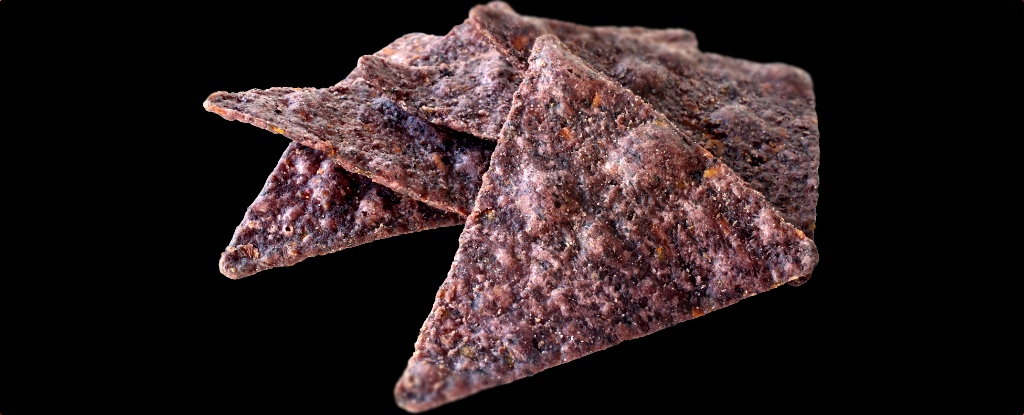A 14-year-old boy from Massachusetts in the US tragically died last Friday hours after eating a tortilla chip dusted with a spice made from two of the world’s hottest peppers, the Carolina Reaper and the Naga Viper.
Marketed as the “One Chip Challenge“, the single chip comes in a coffin-shaped box adorned with a red skull, complete with a list of warnings cautioning those who are pregnant or have a medical condition against eating the contents.
Harris Wolobah was reportedly a healthy adolescent with no medical conditions that could easily explain any potential complications.
Yet shortly after eating the tortilla, the adolescent visited his school nurse complaining of stomach pain. Within hours of being sent home, Wolobah passed out and stopped breathing. He was later pronounced dead in spite of efforts by paramedics and hospital specialists.
While autopsy results are yet to confirm a cause of death, Harris’s mother has called for the product to be withdrawn from sale.
“I just want there to be an awareness for parents to know that it’s not safe,” Lois Wolobah told Rebecca Carballo and Remy Tumin at The New York Times.
Sold by Amplify Snack Brands, a subsidiary of the Hershey Company, the Paqui One Chip Challenge is more extreme sport than appetite-sating snack, with consumers encouraged to hold off on soothing the inevitable burn that comes with eating the chip for as long as possible.
Each year the company releases an updated formula to the challenge, featuring ingredients made from a variety of peppers grown to have an incredibly high heat content.
In 2022, the Carolina Reaper and Trinidad Scorpion chili peppers brought the burn. This year the Scorpion was swapped out for the Naga Viper, a pepper that was briefly declared the world’s hottest in 2011.
The intense heat of a pepper is the result of a chemical sleight-of-hand, as molecules of a compound called capsaicin trigger heat-detecting nerves into sending messages to the nervous system. The more capsaicin a pepper has, the louder our heat nerves will scream “fire”!
An extract made from a common jalapeño pepper tops out at around 10,000 Scoville heat units (SHU) – a standardized measure of capsaicin concentration. Jalapeño peppers warm our mouths at a relatively mild 2,000 to 8,000 SHU.
Carolina Reapers hold the current world record, exceeding 2,000,000 SHU. The Naga Viper sits closer to around 1,400,000 SHU.
Fooling our mouths and digestive tract into thinking it is literally on fire can trigger a rush of excitement in the form of a few feel-good hormones. It’s the body’s way of motivating itself to look beyond the pain and flee from the raging fire.
Meanwhile, the body is preparing for the world of hurt it thinks it will need to fix, winding up inflammatory responses to kick-start healing, opening blood vessels to help cool vital organs, and forcing the digestive tract to release its contents.
In extreme cases the impact can be violent. Social media presents countless hours of individuals swearing, sweating, and slamming the table as they attempt to hold down chicken wings doused in hot sauces or entire record-breaking peppers.
Serious complications from the heightened responses, such as the dangerous narrowing of cerebral arteries or damage to the esophagus with repeated retching, are thankfully uncommon, with fatalities – though recorded – even rarer.
It’s not clear what may have precipitated the complications that may have led to Wolobah’s death, if the One Chip Challenge is in fact responsible. Pacqui has issued a statement expressing condolences, withholding further comment, but the product is reportedly being removed from store shelves in the US following the incident.





